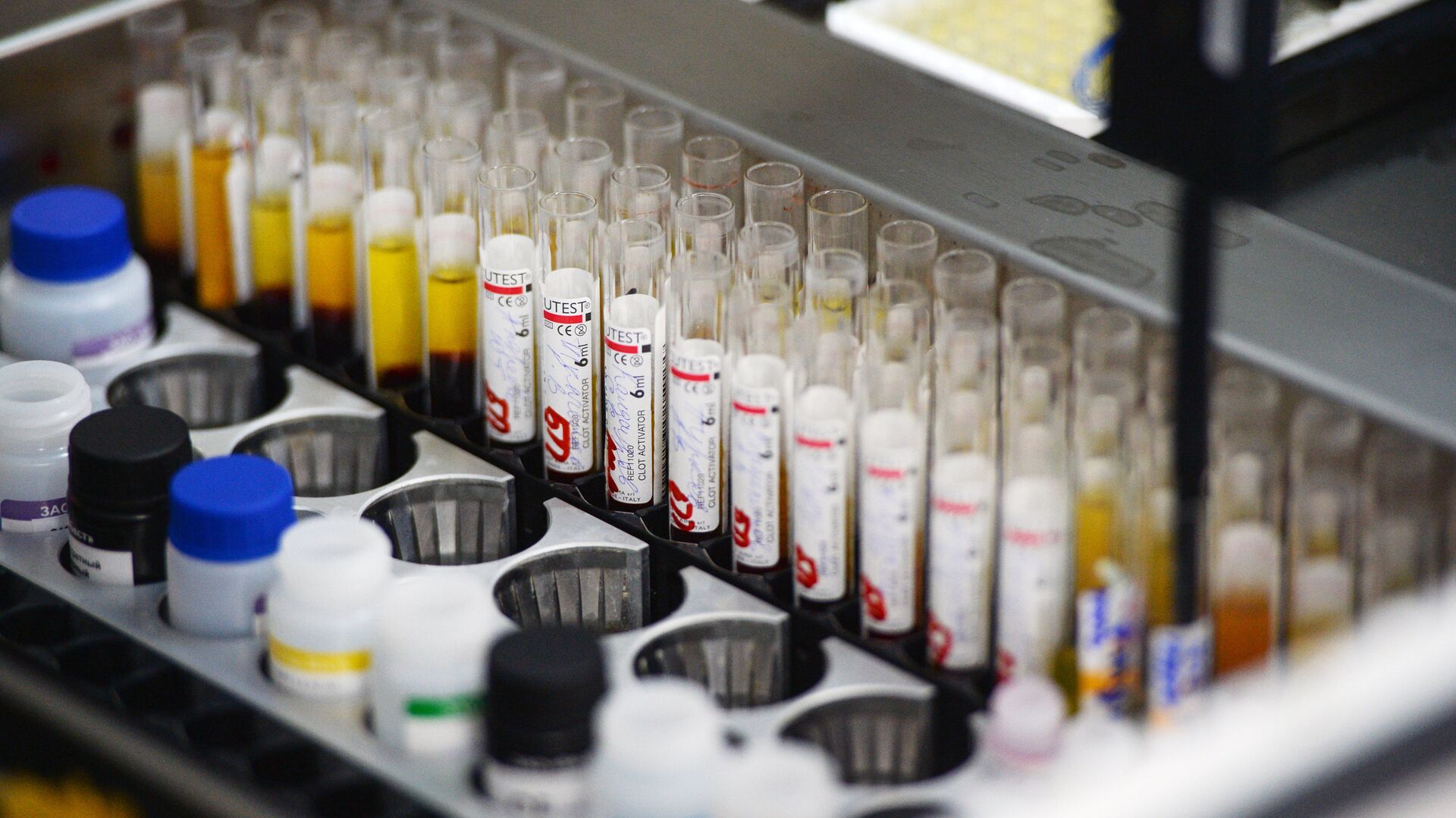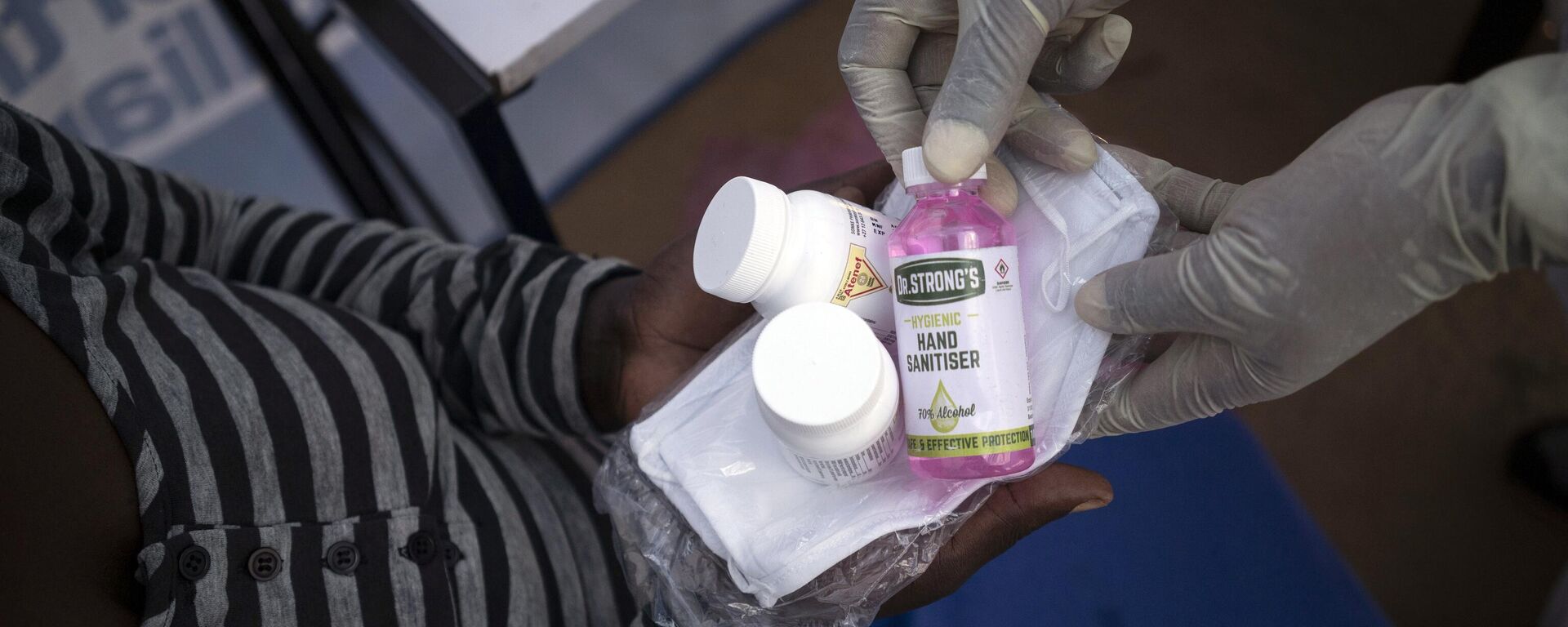https://en.sputniknews.africa/20230523/education-is-key-to-protect-people-from-hiv-in-africa-kenyan-expert-states-1059422898.html
Education is Key to Protect People From HIV in Africa, Kenyan Expert States
Education is Key to Protect People From HIV in Africa, Kenyan Expert States
Sputnik Africa
HIV persists as a central global health problem, claiming 40.1 million lives to date with two thirds of people living with HIV living in the African Region, according to the World Health Organization report.
2023-05-23T20:05+0200
2023-05-23T20:05+0200
2023-05-23T20:05+0200
africa insight
hiv/aids
healthcare
treatment
west africa
southern africa
east africa
opinion
https://cdn1.img.sputniknews.africa/img/07e7/05/17/1059426778_0:160:3077:1890_1920x0_80_0_0_d95009f85cbb17bd3204f1c7a2ea15e1.jpg
The key to preventing the growth of HIV cases in Africa is to educate people who are unaware of the dangers posed by cultural practices, such as female genital mutilation and child marriage, so that people can protect themselves and their communities from the virus' spread, Dr. Anthony Ajayi, an associate research scientist at the African Population and Health Research Center, Kenya, told Sputnik Africa.Sputnik sat down with the expert to discuss the HIV epidemic in Africa and the response to it, since, according to the WHO, it accounts for two thirds of the world's AIDS patients.Some cultural practices in Africa not only contribute to HIV/AIDS, but also threaten the lives of Africans, Ajayi said. Such life-threatening traditions include female genital mutilation and child marriage, which are common in Africa.The expert also warned about the danger of resorting to traditional healers, who supposedly know how to treat HIV, even though their methods are scientifically unfounded.According to the expert, another option for reducing the spread of HIV on the continent is the substitution of these rites with alternative rituals that help people preserve their culture, as well as "prevent risky practices."In this context, as noted by Ajayi, interaction with religious leaders and communities "in dispelling some of these cultural beliefs" must be carried out in order to address the problem.The Kenyan scholar testified about the effectiveness of prevention programs in reducing the spread of AIDS in Africa, which include community-based HIV programs, social protection programs, as well as universal and couple testing and treatment.According to the expert, the emergence of biomedical advances in HIV treatment plays a major role, which is one of the reasons for the continent's noticeable progress in the battle against HIV, especially compared to the situation in the 1980s.However, the situation is complicated by the fact that this decrease could be stalled due to cuts in funding for anti-HIV programs in Africa. The expert attributes this to the consequences of the COVID-19 pandemic and high inflation.The expert cited a UNAIDS report on the global HIV response, stating that development assistance for HIV from bilateral donors other than the US has plummeted by 57%. He believes that domestic investments "are not replacing those losses."Moreover, the professor shared some statistics on HIV spread in Africa. According to the data, HIV prevalence in sub-Saharan Africa is around 3.2%, reaching a maximum in Eswatini (27.9%) and a minimum in Niger (0.2%). The countries most affected by the epidemic are in Southern Africa, while West African countries have the lowest HIV prevalence, and the remaining states are in the middle range, the statistics provided by Ajayi revealed.
https://en.sputniknews.africa/20230522/success-that-cant-be-ignored-expert-on-improved-hiv-statistics-in-malawi-1059410985.html
west africa
southern africa
east africa
Sputnik Africa
feedback@sputniknews.com
+74956456601
MIA „Rossiya Segodnya“
2023
Maxim Grishenkin
https://cdn1.img.sputniknews.africa/img/07e7/0a/17/1063018107_0:0:1104:1103_100x100_80_0_0_03090c85a11f5d2e8a19cf1d989443c9.jpg
Maxim Grishenkin
https://cdn1.img.sputniknews.africa/img/07e7/0a/17/1063018107_0:0:1104:1103_100x100_80_0_0_03090c85a11f5d2e8a19cf1d989443c9.jpg
News
en_EN
Sputnik Africa
feedback@sputniknews.com
+74956456601
MIA „Rossiya Segodnya“
Sputnik Africa
feedback@sputniknews.com
+74956456601
MIA „Rossiya Segodnya“
Maxim Grishenkin
https://cdn1.img.sputniknews.africa/img/07e7/0a/17/1063018107_0:0:1104:1103_100x100_80_0_0_03090c85a11f5d2e8a19cf1d989443c9.jpg
hiv africa, africa health, africa combats hiv
hiv africa, africa health, africa combats hiv
Education is Key to Protect People From HIV in Africa, Kenyan Expert States
Longread
On May 21, World Remembrance Day of AIDS Victims was commemorated, with the day set up to bring awareness to the problems of AIDS patients and people living with HIV.
The key to preventing the growth of HIV cases in Africa is to educate people who are unaware of the dangers posed by cultural practices, such as female genital mutilation and child marriage, so that people can protect themselves and their communities from the virus' spread, Dr. Anthony Ajayi, an associate research scientist at the African Population and Health Research Center, Kenya, told Sputnik Africa.
Sputnik sat down with the expert to discuss the HIV epidemic in Africa
and the response to it, since, according to the WHO, it accounts for two thirds of the world's AIDS patients.
"It's important to continue to educate people. Education is important. When people are educated, and they are aware of some of these dangers of some cultural beliefs and practices, perhaps they are able to protect themselves," Ajayi noted.
Some cultural practices in Africa not only contribute to HIV/AIDS, but also
threaten the lives of Africans, Ajayi said. Such life-threatening traditions include female genital mutilation and child marriage, which are common in Africa.
"We have traditional circumcisers that would perform this mutilation of the female genitalia. Often, they use unsterilized, sharp objects, which can further spread HIV...Also, practices like child marriage, where young girls are married off to older men, also puts them at risk of contracting HIV," Ajayi said.
The expert also warned about the danger of resorting to traditional healers, who supposedly know how to treat HIV, even though their methods are scientifically unfounded.
"So people then don’t use their medications in hope of seeking healing in churches or even among traditional healers. And of course, that puts their life at risk because when they do not use their medication, it reduces progress and some even die as a result," Ajayi noted.
According to the expert, another option for reducing the spread of HIV on the continent
is the substitution of these rites with alternative rituals that help people preserve their culture, as well as "prevent risky practices."
In this context, as noted by Ajayi, interaction with religious leaders and communities "in dispelling some of these cultural beliefs" must be carried out in order to address the problem.
"If you work with the traditional leaders, the community leaders, let them understand some of the risk elements in their practices, perhaps we can begin to see some progress," the expert stressed.
The Kenyan scholar testified about the effectiveness of prevention programs in reducing the spread of AIDS in Africa, which include community-based HIV programs, social protection programs, as well as universal and couple testing and treatment.
According to the expert, the emergence of biomedical advances in HIV treatment
plays a major role, which is one of the reasons for the continent's noticeable progress in the battle against HIV, especially compared to the situation in the 1980s.
"There has been tremendous progress, since the 80s. New HIV infection has reduced significantly. In fact, the progress in sub-Saharan Africa in terms of new infection reduction is quite substantial," Ajayi noted. "So, from the latest data, there's been around 32% decline since 2010 as well."
However, the situation is complicated by the fact that this decrease could be stalled due to cuts in funding for anti-HIV programs in Africa. The expert attributes this to the consequences of the COVID-19 pandemic and high inflation.
"What the data shows is that although there has been lots of progress, progress appears to be stalling now due to reduction in funding to programs that work because of some of the challenges that we witness, the high inflation and the COVID pandemic,” Ajayi warned, adding that African countries are unable to replace those funds.
The expert cited a UNAIDS report on the global HIV response, stating that development assistance for HIV from bilateral donors other than the US has plummeted by 57%. He believes that domestic investments "are not replacing those losses."
"That's a significant change in the response to HIV," Ajayi concluded.
Moreover, the professor shared some statistics on HIV spread in Africa. According to the data, HIV prevalence in sub-Saharan Africa is around 3.2%, reaching a maximum in Eswatini (27.9%) and a minimum in Niger (0.2%). The countries most affected by the epidemic are in Southern Africa, while West African countries have the lowest HIV prevalence, and the remaining states are in the middle range, the statistics provided by Ajayi revealed.



